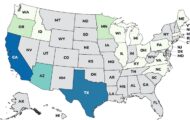According to an interview of FDA Commissioner Dc. Scott Gottlieb, the number of inspections conducted by the FDA have been “sharply reduced” by the partial government shutdown. The FDA has oversight over 80% of the food supply in this country. All “routine inspections” of domestic food facilities have been suspended.

Gottlieb is trying to bring back about 150 inspectors as soon as possible, hopefully next week, to inspect high-risk facilities, such as those that process soft cheese and seafood or make infant formula, or those that may have had issues with food safety in the past.
The Agriculture Department is still inspecting meat and poultry plants in this country, but those inspectors are not being paid for their work. Overseas inspections have continued, according to the New York Times.
Food safety advocates such as the Center for Science in the Public Interest, are alarmed at this problem. Sarah Sorscher, CSPI Deputy Director of Regulatory Affairs said in a statement, “That puts our food supply at risk. Regular inspections, which help stop foodborne illness before people get sick, are vital. Work to finish rules under the Food Safety Modernization Act has also ground to a halt, impairing efforts to improve produce safety, recall communication, and outbreak tracing.
“While the FDA claims that it will continue to conduct “for cause” inspections and pursue criminal and civil investigations related to “imminent threats to human health or life,” the agency has posted no new warning letters since the shutdown began more than two weeks ago. That raises concerns that enforcement activities effectively may have stopped.”
Much of the funds to pay inspectors come from user fees. About 40% of the FDA’s staff is furloughed. Those inspectors average about 160 inspections every week.
Some food safety experts are advising consumers to avoid buying and eating food that is considered riskier in terms of potential contamination, such as raw oysters, smoked seafood, raw sprouts, and soft cheeses made from unpasteurized milk.
FDA inspectors look for problems in processing plants such as infestation by insects and rodents, issues with how food is handled by employees, and contamination through insanitary conditions. They also make sure that these facilities have a hazard control plan written down and in place, and that records are well kept and complete. If problems are found the FDA will issue a Form 483, or warning letter, detailing the issues the inspector found. Indeed, no warning letters have been issued by the FDA for two weeks; that page was last updated on 12/27/2018.




